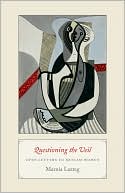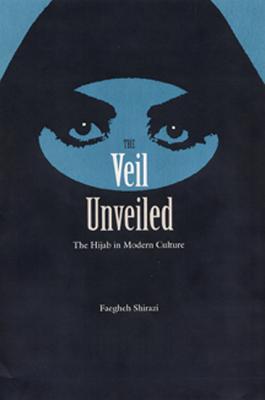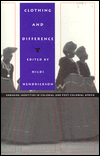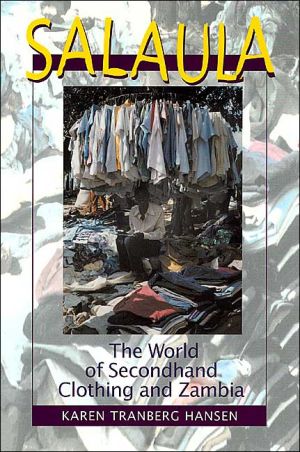The Politics of the Veil
In 2004, the French government instituted a ban on the wearing of "conspicuous signs" of religious affiliation in public schools. Though the ban applies to everyone, it is aimed at Muslim girls wearing headscarves. Proponents of the law insist it upholds France's values of secular liberalism and regard the headscarf as symbolic of Islam's resistance to modernity. The Politics of the Veil is an explosive refutation of this view, one that bears important implications for us all.\ Joan Wallach...
Search in google:
"Brilliant, crisp, and cogently argued. Joan W. Scott's novel and trenchant discursive analysis exposes the prejudices of the reductionist French versions of secularism and feminism regarding Islam and French Muslims from North African and Arab origins. The study is illuminating far beyond the French case, as former colonial and/or working subjects struggle for integration and recognition of their difference."--Abdellah Hammoudi, Princeton University"Carefully argued, insightful and humane, Joan Scott's The Politics of the Veil is far and away the best account of France's identity crisis that was signaled by the famous headscarf affair. The final chapter, on the symbolic meanings of the headscarf/veil, is the most original and brilliant piece of writing that I have read on this topic. This is an indispensable book, transcending the particularity of French obsessions and forcing the reader to think about wider political problems that concern us all."--Talal Asad, author of On Suicide Bombing"Scott traces the history and politics of veil controversies in France and draws apart intertwined strands, starting with the legacy of racism from the colonial past. She persuasively argues for the negotiation of cultural and religious differences rather than their negation. This book will be required reading for all those concerned with the integration of Muslims into Western Christian societies."--Beth Baron, author of Egypt as a Woman: Nationalism, Gender, and Politics"This is an important and timely book that will challenge the dominant terms used to debate the French government's ban on the veil in public schools. Through a careful analysis of historical and contemporary French discourse on Muslims and Arabs, Scott helps us see how the controversy over the veil is indexical of a deep paradox that haunts the ideology of French Republicanism of which the principle of laïcité is a crucial part."--Saba Mahmood, author of Politics of Piety: The Islamic Revival and the Feminist SubjectCecile Laborde - La Vie Des IdeesThis book will undoubtedly rank as one of the best Anglo-American critical commentaries on the affaire du foulard and the 2004 law banning religious signs in schools...[Scott] succeeds in providing a magisterial demonstration of the power of discourse—of the ways in which abstract ideas, when mediated through a vibrant political culture, can influence collective thinking and practice.
Foreword viiAcknowledgments xiIntroduction 1The Headscarf Controversies 21Racism 42Secularism 90Individualism 124Sexuality 151Conclusion 175Notes 185Index 199
\ The NationScott does a good job of conveying the hysteria that surrounded the foulard debate in France...Scott's broad and exhaustive research makes for a bracing account of the debate.\ — Laila Lalami\ \ \ \ \ The Muslim NewsThe Politics of the Veil is a propitious contribution to the exploration and analysis of the complex meanings and purported meanings of these phenomena that have come to symbolise for Turkey and France the struggle to defend the foundations of their Republic against forces that allegedly undermine all that is glorious and good about these 'singular' or 'exceptional' states.\ — Elif Aydýn\ \ \ ChoiceThis book is a powerful denunciation of the French government and people whom Scott labels as racist, discriminatory, and intolerant of Muslim immigrants primarily from North Africa. In instituting a ban on the wearing of Muslim headscarves in public schools, the author claims that France has gone too far in its policies of strict secularism and adherence to the values of republicanism in which citizenship is conceived of as an individual matter devoid of ethnic and religious content. . . . [A] fascinating piece of scholarship.\ — S. Majstorovic\ \ \ \ \ Journal of Modern HistoryThe Politics of the Veil . . . challenges the traditions of detached scholarship, yet Scott's careful use of specific evidence adheres to scholarly methods and demonstrates how historians can contribute critical insights to the public debates of our own time.\ — Lloyd Kramer\ \ \ \ \ New StatesmanVeil-bashing is suddenly socially acceptable among not merely tabloid-reading Little Englanders, but also metropolitan sophisticates...Why should a bit of cloth so threaten the French republic? That is the central question posed by [this] subtle new study...Many French commentators cast the debate about the veil as an issue about Muslims, Islam and integration. Scott, a distinguished historian at Princeton's Institute for Advanced Study, shows that it revealed rather more about the French themselves.\ — Carla Power\ \ \ \ \ Journal of Islamic StudiesIt is difficult to do justice to the rigour and subtlety of this important book, written by a distinguished historian with previous works on gender and democratic politics. It should be read not only by those interested in the French situation but also by anyone who is concerned by the hysteria surrounding Muslims in Europe. It clarifies the ideas behind current debates on multiculturalism, assimilation and integration, and points the way towards a solution.\ — Mary Hossain\ \ \ \ \ International Socialism[I]t is important to remember the lessons of the headscarf ban, to understand the politics that lay behind it and its racist implications. This book is a useful reminder of both.\ — Sadie Robinson\ \ \ \ \ Politics and ReligionScott's book is a wonderful discussion about how well and how badly societies respond to religious challenges. I strongly recommend it.\ — Iva Ellen Deutchman\ \ \ \ \ La Vie Des IdeesThis book will undoubtedly rank as one of the best Anglo-American critical commentaries on the affaire du foulard and the 2004 law banning religious signs in schools...[Scott] succeeds in providing a magisterial demonstration of the power of discourse—of the ways in which abstract ideas, when mediated through a vibrant political culture, can influence collective thinking and practice.\ — Cécile Laborde\ \ \ \ \ Law and Politics Book ReviewJoan Scott authoritatively rejects many of the arguments that are often used in favor of totally excluding Islam from the public sphere. In doing so she has provided much food for thought and has written a book that is equally valuable to scholars and to students in a graduate or upper level undergraduate course.\ — Hootan Shambayati\ \ \ \ \ Women's Studies International ForumThe Politics of the Veil is written in clear and accessible prose, and its provocative yet succinct chapters are thought provoking and user friendly at the same time. . . . [T]he book can be easily divided up and read over two or three class periods or it can be comfortably assigned as a whole. Because its subject matter is so pertinent to so many disciplines, the book can be used in history, sociology, anthropology, political science, gender studies, European Studies, religion, or any courses in the humanities or social sciences examining contemporary French politics and society.\ — Kristen Ghodsee\ \ \ \ \ Evironment and PlanningThis is a very important and . . . welcome book. . . . [T]his sharp and insightful study is undoubtedly a must for any student on not only French society, but of questions regarding secular ideology, gender, and 'deterritorialized' Islam in general.\ — Per-Erik Nilsson\ \ \ \ \ DarkmatterScott succeeds in revealing how the inability of French government's failure to address the issue of the veil meaningfully underlines its current inability to create a country where the co-existence of differences, rather than celebration of what is common or the same, is the basis of community.\ — Irmak Ertuna\ \ \ \ \ Feminist CollectionsScott unfolds excellent and detailed analyses of the construction of the citizen in the French nation state, of French racism and Algeria, and of the prominent news events in the French veiling controversy.\ — Virginia Corvid\ \ \ \ \ The NationScott does a good job of conveying the hysteria that surrounded the foulard debate in France...Scott's broad and exhaustive research makes for a bracing account of the debate.\ \ \ \ \ New StatesmanVeil-bashing is suddenly socially acceptable among not merely tabloid-reading Little Englanders, but also metropolitan sophisticates...Why should a bit of cloth so threaten the French republic? That is the central question posed by [this] subtle new study...Many French commentators cast the debate about the veil as an issue about Muslims, Islam and integration. Scott, a distinguished historian at Princeton's Institute for Advanced Study, shows that it revealed rather more about the French themselves.\ \ \ \ \ ChoiceThis book is a powerful denunciation of the French government and people whom Scott labels as racist, discriminatory, and intolerant of Muslim immigrants primarily from North Africa. In instituting a ban on the wearing of Muslim headscarves in public schools, the author claims that France has gone too far in its policies of strict secularism and adherence to the values of republicanism in which citizenship is conceived of as an individual matter devoid of ethnic and religious content. . . . [A] fascinating piece of scholarship.\ \ \ \ \ Journal of Islamic StudiesIt is difficult to do justice to the rigour and subtlety of this important book, written by a distinguished historian with previous works on gender and democratic politics. It should be read not only by those interested in the French situation but also by anyone who is concerned by the hysteria surrounding Muslims in Europe. It clarifies the ideas behind current debates on multiculturalism, assimilation and integration, and points the way towards a solution.\ \ \ \ \ The Muslim NewsThe Politics of the Veil is a propitious contribution to the exploration and analysis of the complex meanings and purported meanings of these phenomena that have come to symbolise for Turkey and France the struggle to defend the foundations of their Republic against forces that allegedly undermine all that is glorious and good about these 'singular' or 'exceptional' states.\ \ \ \ \ International Socialism[I]t is important to remember the lessons of the headscarf ban, to understand the politics that lay behind it and its racist implications. This book is a useful reminder of both.\ \ \ \ \ Politics and ReligionScott's book is a wonderful discussion about how well and how badly societies respond to religious challenges. I strongly recommend it.\ \ \ \ \ La Vie Des IdeesThis book will undoubtedly rank as one of the best Anglo-American critical commentaries on the affaire du foulard and the 2004 law banning religious signs in schools...[Scott] succeeds in providing a magisterial demonstration of the power of discourse—of the ways in which abstract ideas, when mediated through a vibrant political culture, can influence collective thinking and practice.\ \ \ \ \ Law and Politics Book ReviewJoan Scott authoritatively rejects many of the arguments that are often used in favor of totally excluding Islam from the public sphere. In doing so she has provided much food for thought and has written a book that is equally valuable to scholars and to students in a graduate or upper level undergraduate course.\ \ \ \ \ Women's Studies International ForumThe Politics of the Veil is written in clear and accessible prose, and its provocative yet succinct chapters are thought provoking and user friendly at the same time. . . . [T]he book can be easily divided up and read over two or three class periods or it can be comfortably assigned as a whole. Because its subject matter is so pertinent to so many disciplines, the book can be used in history, sociology, anthropology, political science, gender studies, European Studies, religion, or any courses in the humanities or social sciences examining contemporary French politics and society.\ \ \ \ \ Journal of Modern HistoryThe Politics of the Veil . . . challenges the traditions of detached scholarship, yet Scott's careful use of specific evidence adheres to scholarly methods and demonstrates how historians can contribute critical insights to the public debates of our own time.\ \ \ \ \ Evironment and PlanningThis is a very important and . . . welcome book. . . . [T]his sharp and insightful study is undoubtedly a must for any student on not only French society, but of questions regarding secular ideology, gender, and 'deterritorialized' Islam in general.\ \ \ \ \ DarkmatterScott succeeds in revealing how the inability of French government's failure to address the issue of the veil meaningfully underlines its current inability to create a country where the co-existence of differences, rather than celebration of what is common or the same, is the basis of community.\ \ \ \ \ Feminist CollectionsScott unfolds excellent and detailed analyses of the construction of the citizen in the French nation state, of French racism and Algeria, and of the prominent news events in the French veiling controversy.\ \ \ \ \ The Muslim News\ The Politics of the Veil is a propitious contribution to the exploration and analysis of the complex meanings and purported meanings of these phenomena that have come to symbolise for Turkey and France the struggle to defend the foundations of their Republic against forces that allegedly undermine all that is glorious and good about these 'singular' or 'exceptional' states.\ \ \ \ \ La Vie Des Idées\ This book will undoubtedly rank as one of the best Anglo-American critical commentaries on the affaire du foulard and the 2004 law banning religious signs in schools...[Scott] succeeds in providing a magisterial demonstration of the power of discourse--of the ways in which abstract ideas, when mediated through a vibrant political culture, can influence collective thinking and practice.\ \ \ \ \ La Vie Des IdeesThis book will undoubtedly rank as one of the best Anglo-American critical commentaries on the affaire du foulard and the 2004 law banning religious signs in schools...[Scott] succeeds in providing a magisterial demonstration of the power of discourse—of the ways in which abstract ideas, when mediated through a vibrant political culture, can influence collective thinking and practice.\ — Cecile Laborde\ \ \ \ \ La Vie Des Idées\ This book will undoubtedly rank as one of the best Anglo-American critical commentaries on the affaire du foulard and the 2004 law banning religious signs in schools...[Scott] succeeds in providing a magisterial demonstration of the power of discourse--of the ways in which abstract ideas, when mediated through a vibrant political culture, can influence collective thinking and practice.\ — Cécile Laborde\ \






